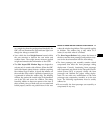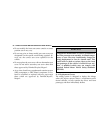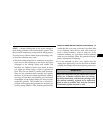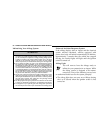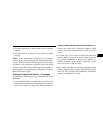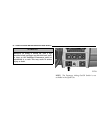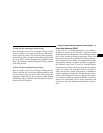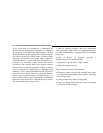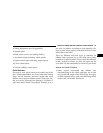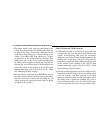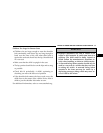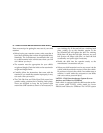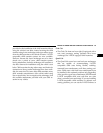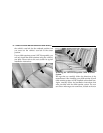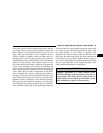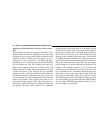
•
Airbag deployment level (if applicable)
•
Seatbelt status
•
Brake status (service and parking brakes)
•
Accelerator status (including vehicle speed)
•
Engine control status (including engine speed)
•
Cruise control status
•
Traction/stability control status
Child Restraint
Everyone in your vehicle needs to be buckled up all the
time - babies and children, too. Every state in the United
States and all Canadian provinces require that small
children ride in proper restraint systems. This is the law,
and you can be prosecuted for ignoring it. Children 12
years and under should ride properly buckled up in a
rear seat, if available. According to crash statistics, chil-
dren are safer when properly restrained in the rear seats
rather than in the front.
There are different sizes and types of restraints for
children from newborn size to the child almost large
enough for an adult seat belt. Always check the child seat
owner’s manual to ensure you have the right seat for
your child. Use the restraint that is correct for your child:
Infants and Small Children
•
Safety experts recommend that children ride
rearward-facing in the vehicle until they are at least
one year old and weigh at least 20 lbs (9 kg). Two types
of child restraints can be used rearward facing: infant
carriers and ЉconvertibleЉ child seats.
THINGS TO KNOW BEFORE STARTING YOUR VEHICLE 59
2



